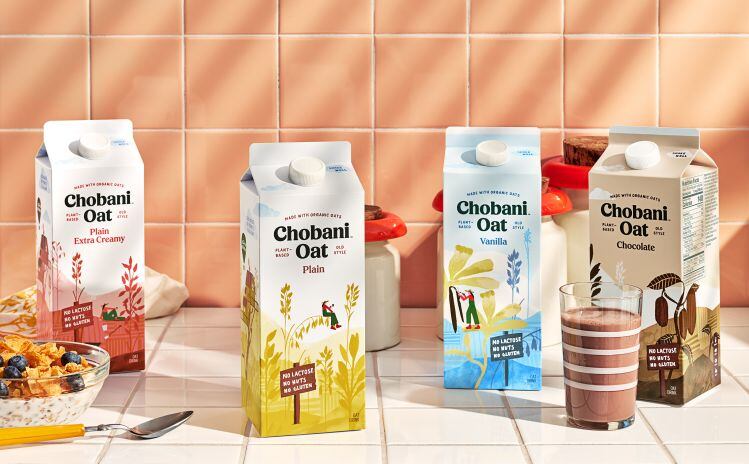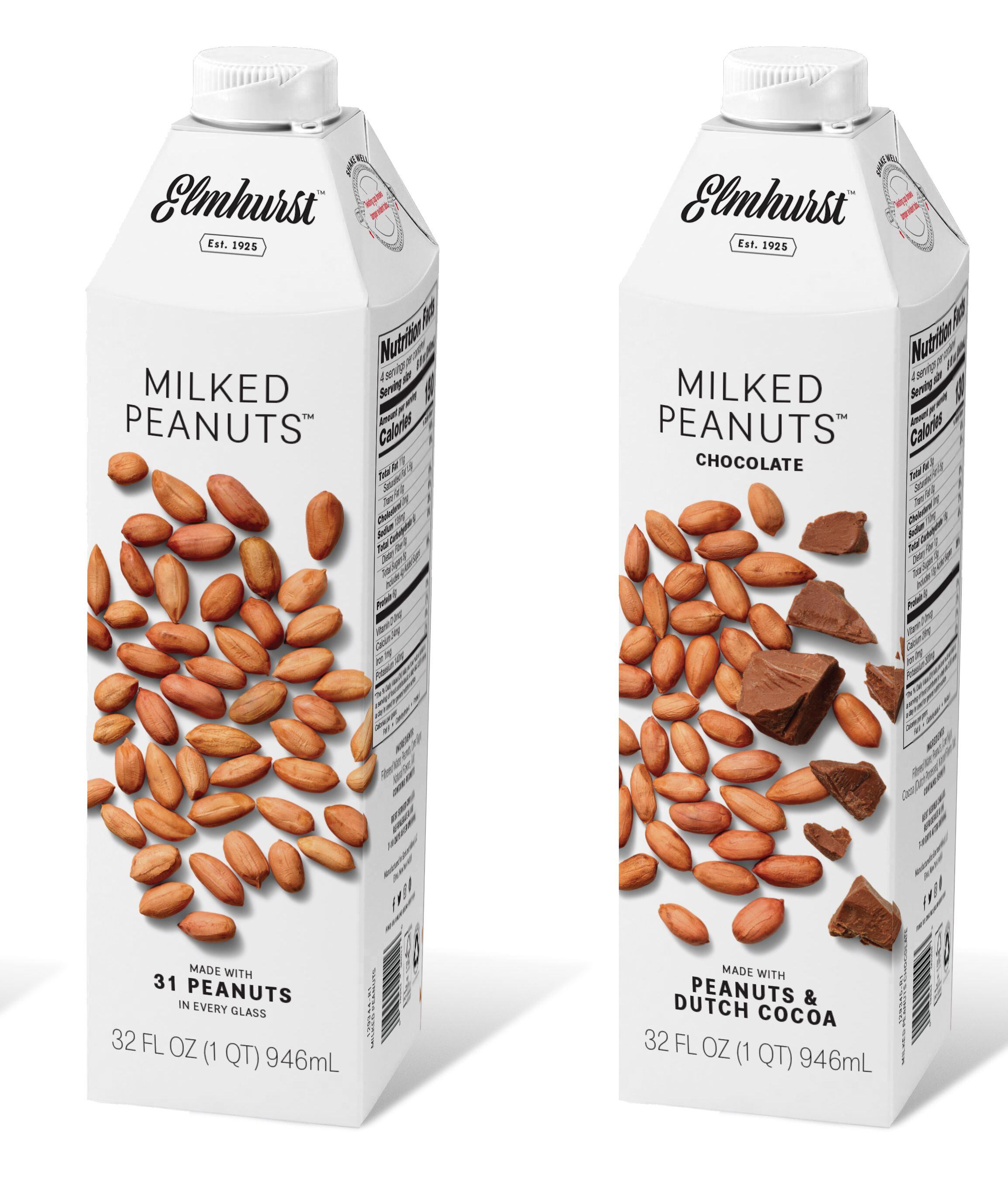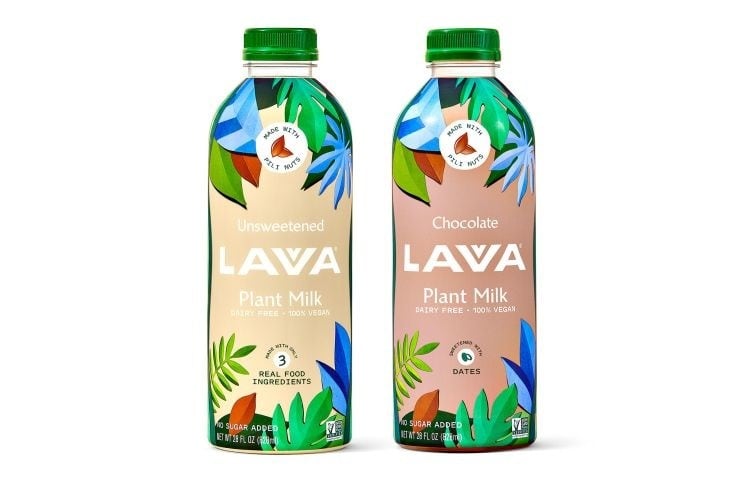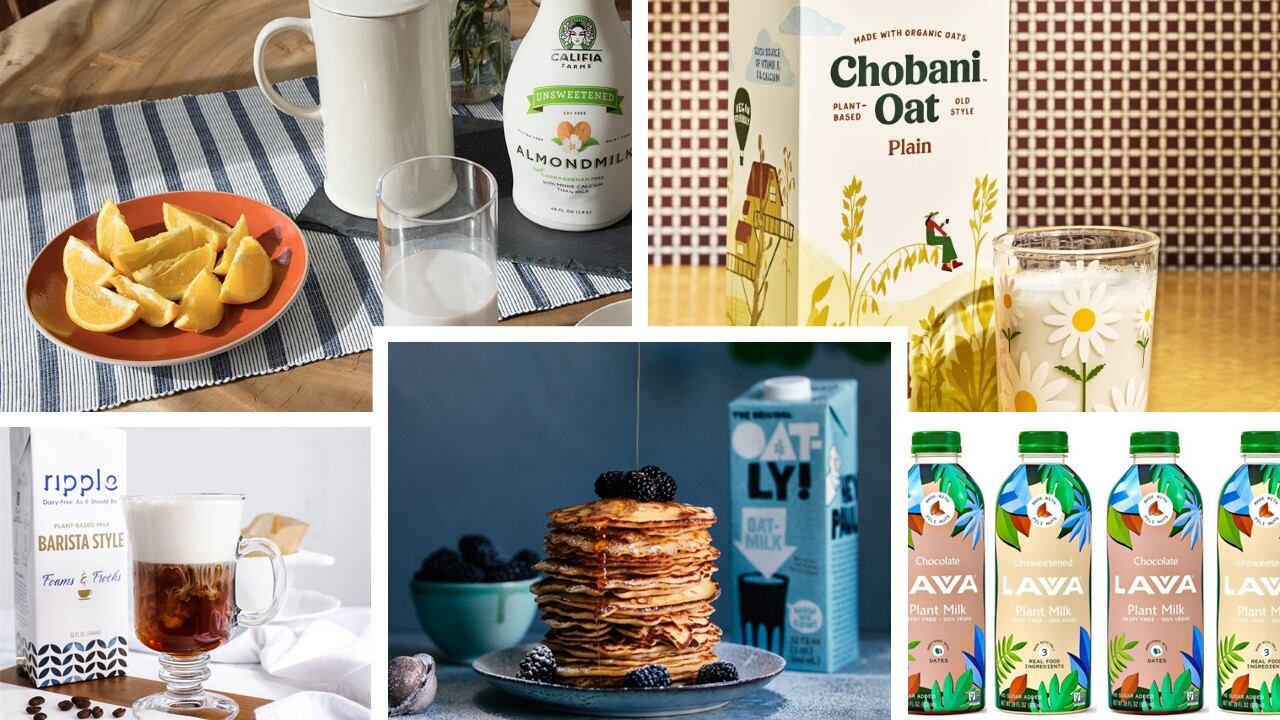The figures span the conventional multi-outlet (MULO) channel powered by IRI covering grocery and mass (including Walmart) club, dollar, and military; plus the natural enhanced channel.
They do not however, include data from e-commerce sales, convenience stores, or some key retailers in the plant-based milk segment including ALDI, Costco, Whole Foods and Trader Joe’s, so the actual numbers are likely to be substantially higher.
Almondmilk still going strong, oatmilk on fire, coconut and pea showing solid gains
Sales of almondmilk - which dominates the segment with a 63% share, much of which has been clawed away from soymilk – were up 13.1% to $1.497bn in the 52-weeks to Sept 6, 2020, with refrigerated sales up +13.4% to $1.379bn and shelf-stable sales up +10% to $118.2m.
Oatmilk – a relative newcomer to the segment that barely registered in the data a couple of years ago – has already muscled into the #2 spot, edging ahead of soy, with sales surging 303.7% to $213.35m, driven by a 350.8% increase in refrigerated sales to $192.36m and a 106.4% rise in shelf-stable sales to $20.99m over the 52-week period.
Sales of peamilk – another relative newcomer – were up 12.1% driven by 11.9% growth in refrigerated sales and 18.6% growth in shelf-stable products.
Sales of coconutmilk – which has been around for a long time – were up a solid 16.1% to $125.1m, driven by strong growth in shelf-stable products (+50.5%) and more modest growth in refrigerated products (+3.1%).
Soymilk in decline
Soymilk sales declined 4.5% to $202.25m - a precipitous decline from a decade or so ago, when they topped $1bn - with refrigerated sales declining -4.8% to $180.58m, and shelf-stable sales declining -2.1% to $21.68m over the same period at a time when most CPG categories have posted growth as COVID-19 has shifted food consumption towards the home.

Sales of smaller categories including walnutmilk (refrigerated -57%; shelf-stable -3.8%), and pecanmilk were also down.
Sales of flaxmilk were more of a mixed bag, with refrigerated sales down -7.9%, but shelf-stable sales (a far smaller market) up +54.3% over the period.
Cashewmilk displayed a similar trajectory, with refrigerated sales down -18.1%, but shelf-stable sales up +5.5%.
Ricemilk followed the same pattern, with refrigerated sales down -7.8% but shelf-stable sales up +4.1%.
Peanut milk… not a hit first time around, at least
Some emerging categories showed strong growth (macadamia, seed blends, selected nut blends) albeit off a tiny base; however, not every new entrant to the category has hit CPG gold, with the first player to launch with a peanutmilk product pulling it from the market in 2019.

Launched in early 2018, Elmhurst 1925’s ‘milked peanut’ line offered more protein, less sugar, a creamier mouthfeel and a shorter cleaner label than other nut milks, and was one of the most eagerly anticipated launches in the category, given the mass market appeal of peanuts vs some of the more niche offerings in the space.
However, VP of Marketing Heba Mahmoud confirmed to FoodNavigator-USA that the product had been dropped early last year: “Milked Peanuts has been discontinued.
"Allergen concerns were a contributing factor but mainly, we saw there was a strong demand in other nut- and oat-based products and we decided it was best to focus our efforts where our consumers wanted it most.”
But she added: “We are always exploring new opportunities and we may bring back the product someday.”
Plant-based milk by numbers (SPINS natural enhanced and MULO, 52 weeks to Sept 6, 2020):
- Total market: +17% to $2.362bn
- Refigerated plant milks: +17% to $2.086bn
- Shelf-stable plant milks: +17% to $274.4m
The key segments include:
- Almondmilk ($1.497bn): Refrig +13.4%, Shelf-stable +10%
- Oatmilk ($213.35m): Refrig +350.8%, Shelf-stable +106.4%
- Soymilk ($202.25m): Refrig -4.8%, Shelf-stable -2.1%
- Coconutmilk ($125.1m): Refrig +3.1%, Shelf-stable +50.5%
- Ricemilk ($44.7m): Refrig -7.8%, Shelf-stable +4.1%
- Peamilk ($42.6m): Refrig +11.9%, Shelf-stable +18.6%
*Chicago-based data provider and market research company SPINS, for the 52 weeks to Deptember 6, 2020, spanning the conventional multi-outlet (MULO) channel powered by IRI covering grocery and mass (including Walmart, excluding ALDI), club (excluding Costco), dollar, and military; plus the natural enhanced channel (excluding Whole Foods and Trader Joe’s), and would be higher should some of these key retailers’ data be included.

Lavva – best-known for its pili nut and plaintain-fueled plant-based yogurts – has moved into the plant-based milk category with a higher-fat product made with three ingredients: organic coconut water, filtered water, and pili nuts; with no added sugar, sweeteners, gums, stabilizers or emulsifiers.

